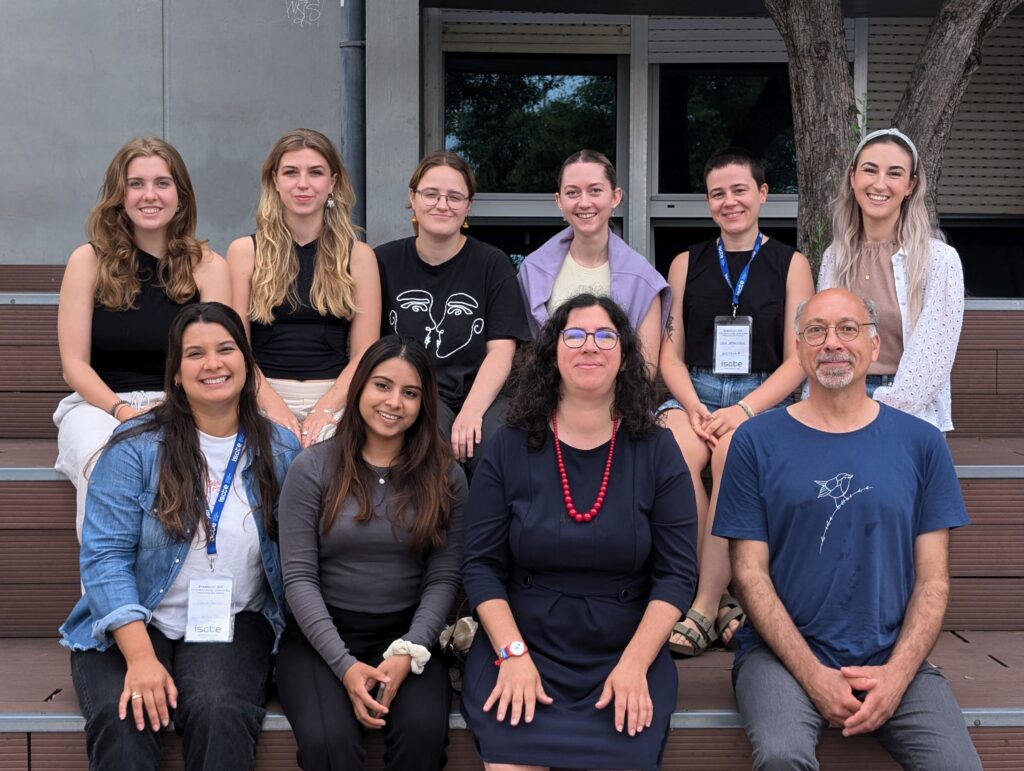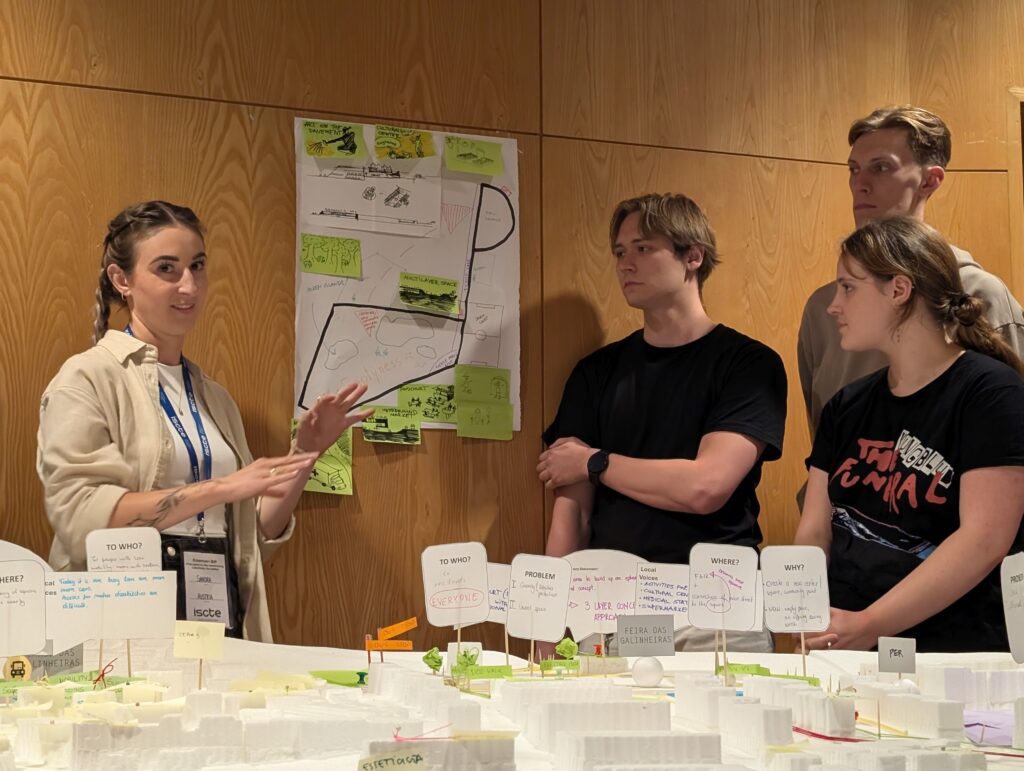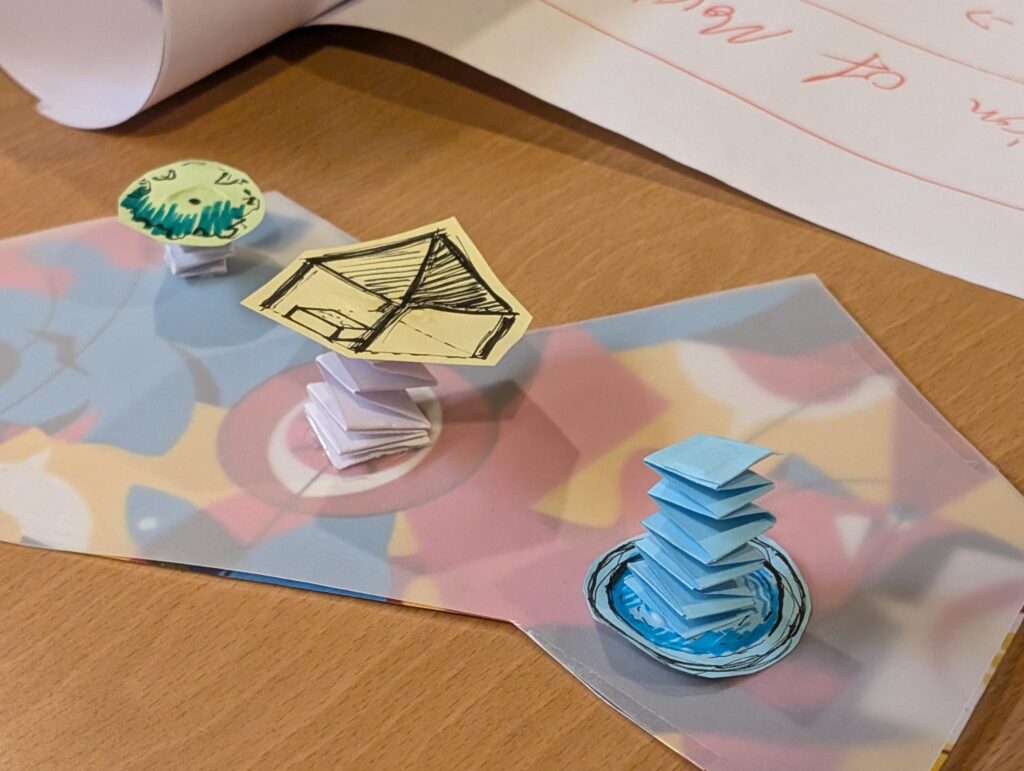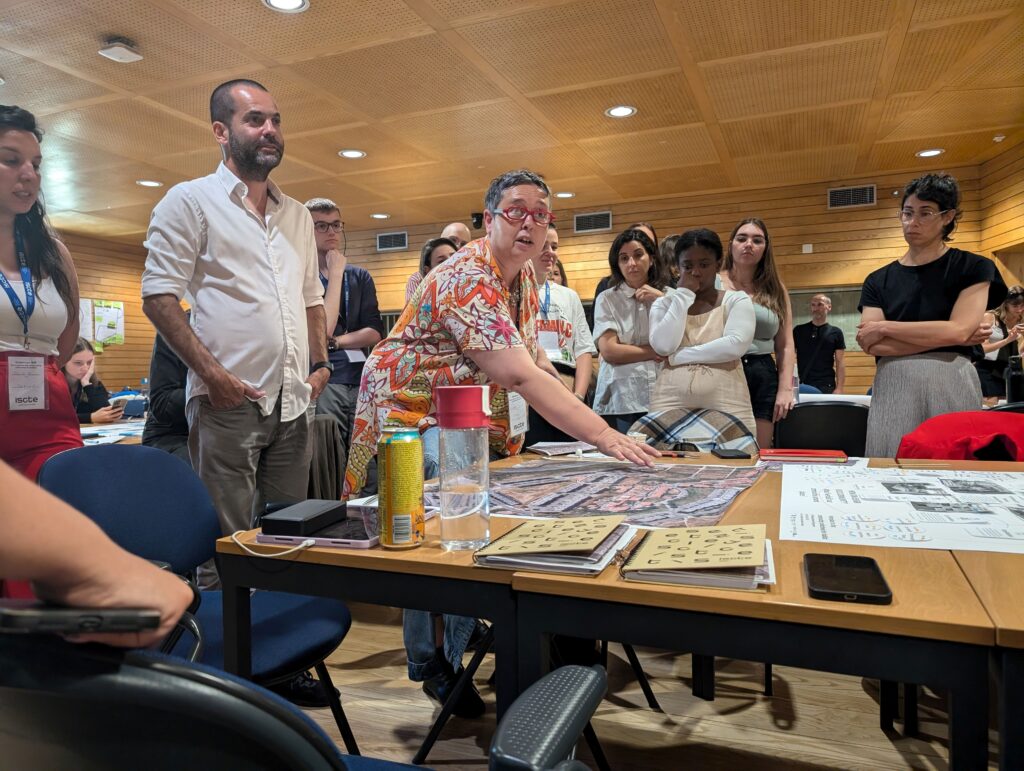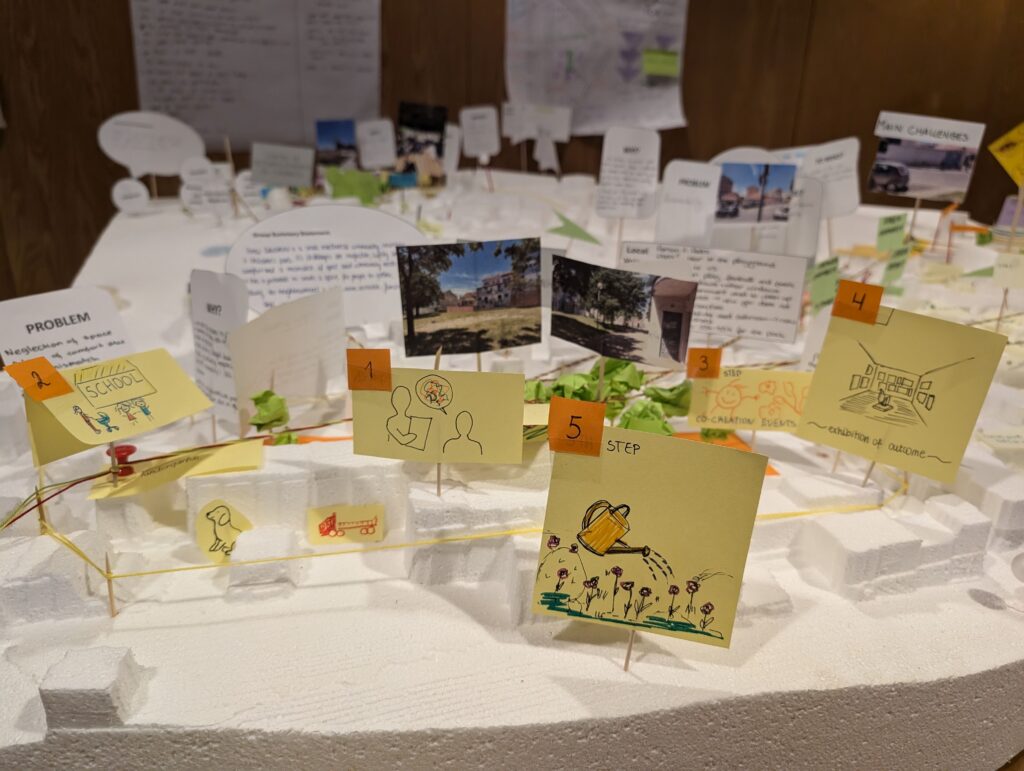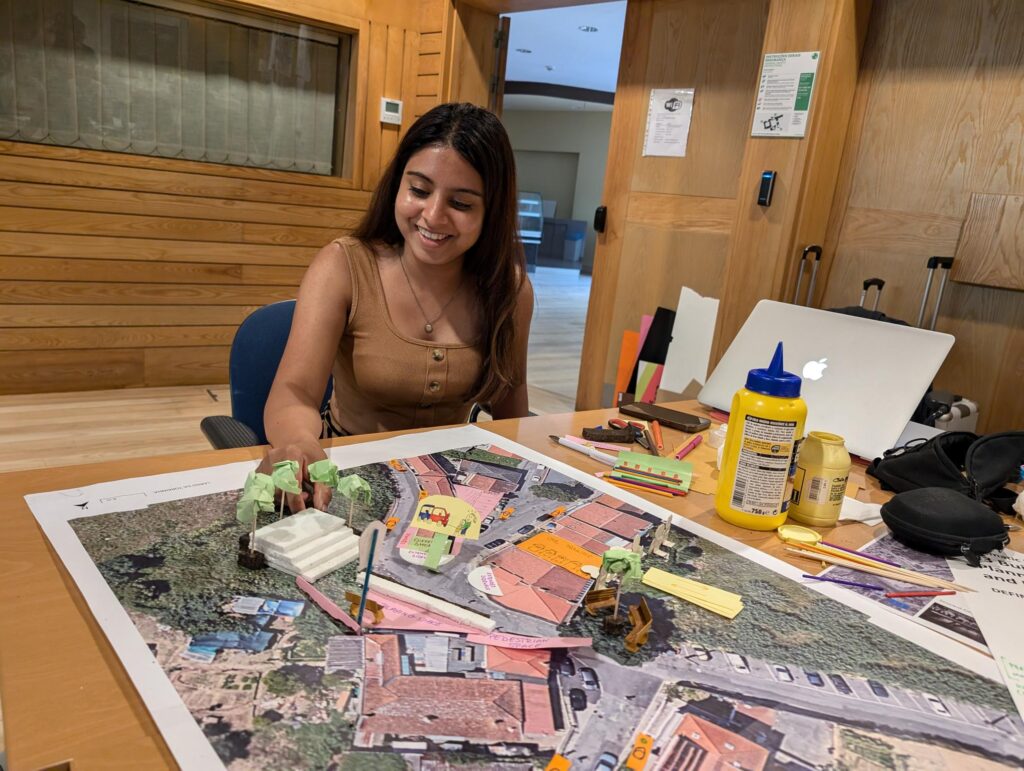As part of a Erasmus+ BIP, short for Blended Intensive Program, our five Master’s students, Camila Sanches, Manisha Nandi, Sandra Kurzmann, Hannah Schalhas and Lisa Kebritsch, had the opportunity to work together with other international students for a week at the renowned ISCTE – Instituto Universitário de Lisboa. The student projects dealt with questions of sustainable urban development using placemaking, community-based planning approaches and SWOT analyses in interdisciplinary teams.
This international project was launched together with five partner institutions from the fields of planning, architecture, urban tourism and anthropology. Prof. Dr. Alexandra Paio acted as host and organizer. Co-organizers from the partner universities were: Dorota Gawryluk, Phd, Bialystok University of Technology; Prof. Dr Giovanna Marconi Iuav – Planning & Climate Change, and Dr Piotr Czyż, University of Gdansk as well as FH-Prof. Dr Cornelia Dlabaja from FHWien der WKW, and students from the University of Vienna. A total of 42 students from Poland, Italy, Portugal and Austria took part.
Lisbon’s urban neighborhoods as a research laboratory
The first day began with an excursion to the analysis areas in selected neighborhoods of the Portuguese capital. The students conducted their initial field research there. The following week was characterized by input from local and international experts at three round tables and intensive teamwork in six target areas. The students worked together in interdisciplinary teams and developed concepts to improve the quality of life in the analyzed areas.
- Round Table #1: How is international mobility changing the city? With Cornelia Dlabaja, FHWien der WKW, Emílio Brandão, Chalmers University, KJ Nawratek, Sheffield University and Konstantinos Avramidis, Cyprus University, presented by Giovanna Marconi, University of Venice
- Round Table #2: How can design build community? With Nuno Varela, Kriativu; Marina Paisana, Rés-do-chão; Labic Barreiro Velho, Carolina Cardoso; Muro Atelier, Joana e Vicent; e Ateliermob, Tiago Saraiva, presented by Alexandra Paio
- Round Table #3: What is the role of public spaces as a place of social cohesion? With António Brito Guterres, DINAMIA´CET, Portugal, Piotr Czyż, Faculty of Architecture Gdańsk University of Technology, Poland, Dorota Gawryluk, Bialystok University of technology, Poland, Roberto Falanga, ICS, Portugal, presented by Ligia Nunes, ASF-Portugal
Creative solutions for more liveable neighborhoods through sustainable urban development approaches
After a week of hard work, the students presented their ideas and concepts to Cláudia Baptista, a member of Lisbon’s city council, among others. Many new solutions for redesigning and adapting the neighborhoods studied were developed, as each group was made up of students from different disciplines – including architecture, urban planning, tourism research and anthropology.
Cornelia Dlabaja, Endowed Professor for Sustainable Tourism & Urban Development on this week: ‘It was a very intensive exchange between the participants and a great experience to be part of this project. I am very pleased that the students at FHWien der WKW showed so much commitment and that unique concepts were created.’
>> More information about the Master`s program in Urban Tourism & Visitor Economy Management
